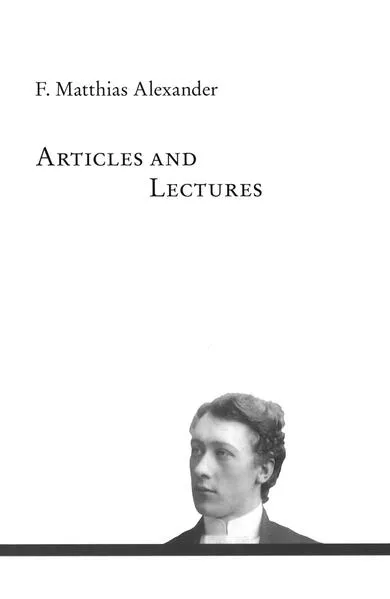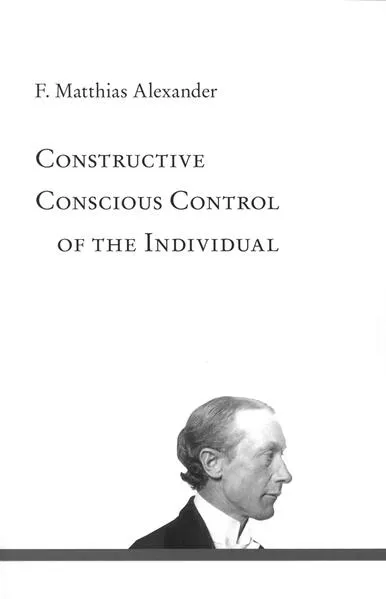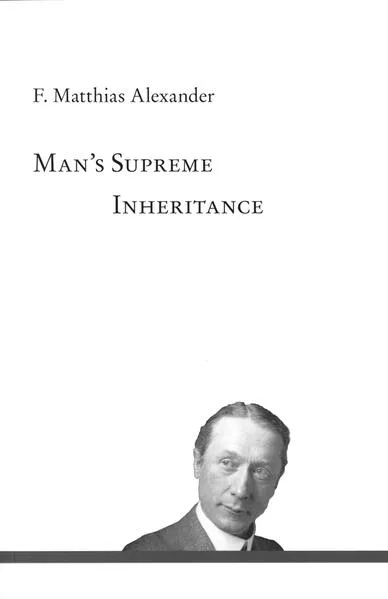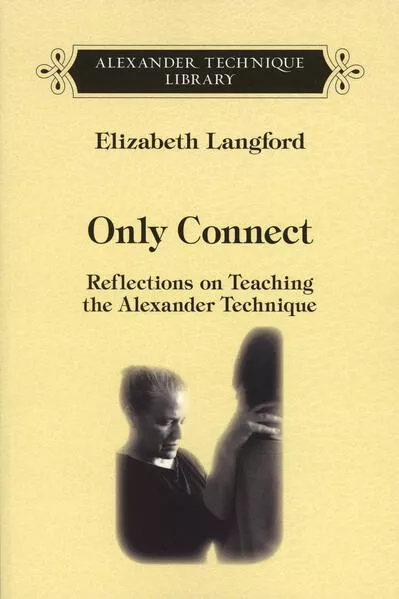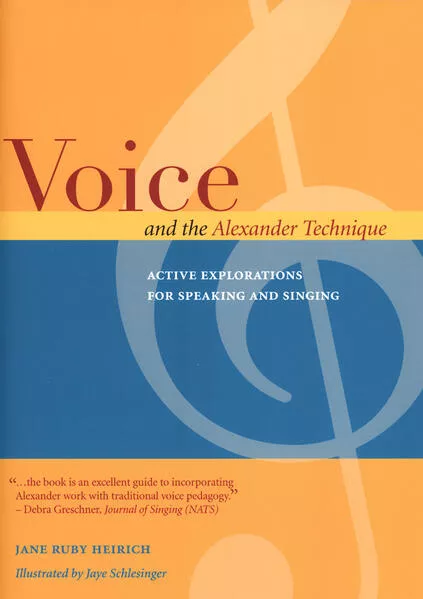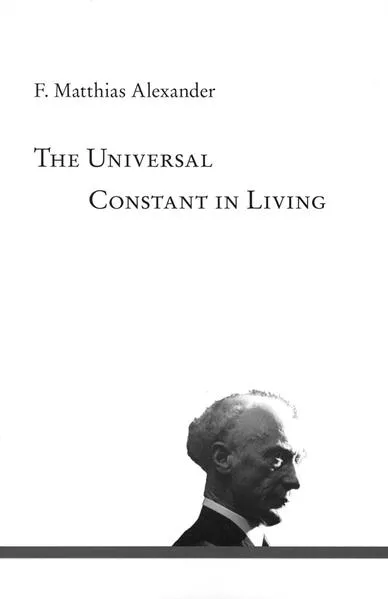
F. Matthias Alexander
The Universal Constant in Living
ISBN: 978-3-903-41614-7
227 Seiten | € 16.00
Buch [Taschenbuch]
Erscheinungsdatum:
25.10.2023
Ratgeber
F. Matthias Alexander
The Universal Constant in Living
The Universal Constant in Living was Alexander’s fourth and last book. It contains his most mature and consummate thoughts on his technique.
Alexander shares with the reader knowledge accumulated in the course of more than 45 years of practical teaching experience. Having fully developed the concepts of his technique, he presents a clear exposition of the fundamental principles: prevention (inhibition), the primary control of use, and the unity (wholeness) of the human organism, among others.
Written in the turbulent 1930s and completed in the early years of WWII, The Universal Constant in Living makes a great plea for understanding the dangers of separation in the activity of living. Alexander explains how his technique meets the urgent need for wholeness in approach and action.
Furthermore, he argues that the practice of his technique provides not only freedom of thought and action, but freedom in thought and action.
Alexander also presents testimonies to the practical results and principles of his technique.
In an appreciation of Alexander’s work Professor George Coghill, a pioneer of developmental neurophysiology, provides support for Alexander’s concept of a primary control.
Alexander shares with the reader knowledge accumulated in the course of more than 45 years of practical teaching experience. Having fully developed the concepts of his technique, he presents a clear exposition of the fundamental principles: prevention (inhibition), the primary control of use, and the unity (wholeness) of the human organism, among others.
Written in the turbulent 1930s and completed in the early years of WWII, The Universal Constant in Living makes a great plea for understanding the dangers of separation in the activity of living. Alexander explains how his technique meets the urgent need for wholeness in approach and action.
Furthermore, he argues that the practice of his technique provides not only freedom of thought and action, but freedom in thought and action.
Alexander also presents testimonies to the practical results and principles of his technique.
In an appreciation of Alexander’s work Professor George Coghill, a pioneer of developmental neurophysiology, provides support for Alexander’s concept of a primary control.
Unterstütze den lokalen Buchhandel
Nutze die PLZ-Suche um einen Buchhändler in Deiner Nähe zu finden.
Bestelle dieses Buch im Internet
| Veröffentlichung: | 25.10.2023 |
| Höhe/Breite/Gewicht | H 20 cm / B 13 cm / 320 g |
| Seiten | 227 |
| Art des Mediums | Buch [Taschenbuch] |
| Preis DE | EUR 16.00 |
| Preis AT | EUR 16.00 |
| Auflage | 6. Auflage |
| ISBN-13 | 978-3-903-41614-7 |
| ISBN-10 | 3903416142 |
Über den Autor
F. Matthias Alexander (1869–1955) is the originator of the F. M. Alexander Technique. He started to evolve his technique in the early 1890s. Encouraged by doctors, Alexander moved to London in 1904. During the period 1914–24 he also taught regularly in New York and Boston. In New York John Dewey became his pupil and supporter and wrote forewords not only to the next edition of Man's Supreme Inheritance (1918), but also to Constructive Conscious Control of the Individual (1923) and The Use of the Self (1932). In these books he developed and expanded his theme, including examples and case stories as illustrations. During the 1920s and 1930s Alexander's pupils included George Bernard Shaw, Aldous Huxley, Leonard Wolf, Sir Stafford Cripps, The Earl of Lytton and doctors, scientists and performers. In 1931 Alexander started a 3-year course, training teachers in his technique, which ensured its survival and continual expansion. At the outbreak of war in 1939 Alexander moved the school to the USA. Here he finished his last book, The Universal Constant in Living (1942), reminding us all that we are constantly using ourselves, that our use continuously affects our functioning, and that we can co-ordinate and control that use to great advantage. Alexander continued to teach to within a few days of his death in 1955.Diesen Artikel teilen
0 Kommentar zu diesem Buch
... weitere Publikationen von Alexander, F. Matthias
Leserunde
Unendlicher Friede
Bewerbungsfrist bis zum: 03.10.2024



